|
Somerset Beekeepers’ Association (SBKA) is calling on the public to help fight a major threat to honey bees and other pollinators - Asian hornets.
To date around 51 nests have been discovered in the UK so far this year, more than three times the number found in the last six years combined. Local beekeepers are concerned that these invasive predators will reach Somerset. There have been a number of unconfirmed sightings in the county. Lynne Ingram, SBKA’s Asian hornet team coordinator, said: “Asian hornets are wreaking havoc in Europe and, if they get established in the UK, our honey bees and many other insects will be decimated here, too.” Asian hornets (Vespa velutina) look like a large black wasp with yellow legs, an orange face, blackish brown body with a broad orangey yellow stripe towards the end of the abdomen. They are slightly smaller than native European hornets. Anyone who suspects they have seen an Asian hornet should report it immediately using the phone app ‘Asian Hornet Watch’ or the online reporting form: https://risc.brc.ac.uk/alert.php?species=asian_hornet Asian hornets are a non-native, invasive species and must be reported. Many nests have been found in patches of brambles and in hedgerows and there are fears that foragers enjoying the bumper blackberry crop and gardeners could inadvertently disturb a nest. Lynne added: “Foragers and gardeners should check hedges carefully to avoid disturbing an Asian hornet nest. Normally they don’t attack, but if you are near a nest, or disturb it, they can become extremely aggressive and dangerous.” A single nest can contain up to 6,000 workers and 350 queens. “We must act to stop them getting established in this country,” added Lynne. “Now is a key time to discover and destroy any nests before they produce new queens, which will mate, go into hibernation, and produce new nests next year” At this time of the year Asian hornets can be spotted on flowering ivy, fallen fruit and catching honey bees outside their hives. Asian hornets hover about a foot away from the entrance to a beehive, before charging bees and forcing them to the ground. They then paralyse them and carry the bees away. Just one Asian hornet can hunt down and eat 50 honey bees a day and their habit of hawking (hovering) outside the hive stops the bees from collecting nectar and pollen to feed themselves. “We need the public to help protect honey bees and other pollinators from this voracious predator.” Hornet sightings are filtered by the National Bee Unit (NBU), part of Defra, and teams of bee inspectors deployed to track hornets back to their nests which are then destroyed. Beekeepers across the country are mobilising as part of elite teams trained to provide emergency support to the NBU’s hornet hunters. A single Asian hornet queen arrived by accident in France from China in 2004 and has spread rapidly across France and into many other European countries. Ends Photos: About Asian hornets (Vespa velutina):
About Somerset Beekeepers’ Association (SBKA):
e to edit. 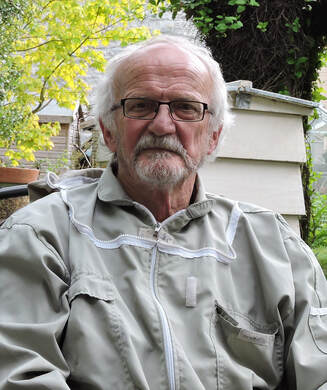 The Chairman of Somerset Beekeepers’ Association, Stewart Gould, is urging beekeepers to keep local honey bees and reject a campaign to overturn the recent ban on bee imports. “Locally bred bees are perfectly adapted for the conditions; imported bees carry the risk of pests and diseases and are genetically better suited to the country of origin,” he said. His comments follow media coverage of the new Brexit rules which have stopped the importation of honey bee colonies directly into the UK from the EU although queen bees are still allowed. HMRC is aware that there may be attempts to get around the import rules by using Northern Ireland as a back door but anti-avoidance measures are in place. “The importation ban is important and avoids the risk of bringing new problems to the UK’s bees. For example, bees in many areas of the country suffer from Chronic Bee Paralysis Virus which is associated with the importation of bees. And we are worried that the small hive beetle, which is in southern Italy, could come into the country and decimate our bees.” Somerset Beekeepers’ Association runs courses to help members to rear their own queen bees from successful colonies which ensures they are adapted to the conditions in their own area. Patrick Murfet from a beekeeping equipment company in Kent has started a petition calling on the government to reverse the new rules. The number of beekeepers continues to rise in the UK; membership of the British Beekeepers’ Association stands at more than 28,000 while Somerset’s is topping a record 1,200. Ends Somerset beekeepers are calling on the public to pick up their smart phones and help defend the county’s bees against dangerous Asian hornets.
“See it, snap it and send it!” said Lynne Ingram, co-ordinator of Somerset’s Asian hornet action teams. “We need the public’s help to save our bees from the Asian hornet which has been wreaking havoc through Europe since 2004,” added Lynne, a beekeeper with 30 honeybee colonies near Bridgwater. Asian hornet week – September 7-13 – is a key time to spot the yellow-legged insects whose sting can be fatal and their arrival decimate native pollinators. “Now is the time to spot the hornets so that their nests can be destroyed before they multiply. “If you see a hornet take a photo, send it to us and we’ll do the rest. Or use the official Asian hornet watch app and report it.” An Asian hornet (Vespa velutina nigrithorax) is about twice the size of a honeybee, has an orange face and a dark abdomen with a yellow fourth segment. Its thorax is entirely dark brown or black and velvety, and the insect has bright yellow tips to its legs. “The arrival of the hornet in Britain is especially bad news for bees - a favourite food source - and a single hornet can completely devastate a beehive, devouring up to 60 at a time.” In the autumn Asian hornets can be spotted on flowering ivy, fallen fruit and hawking honeybees outside their hives as well as catching other pollinators. Asian hornets have been spotted in the UK and are rampant on the Channel Islands after they were accidentally introduced into southern France from China. The University of Exeter is carrying our research into the impact Asian hornets are having on honeybees and other pollinators where they have become established. Research Fellow and behavioural ecologist Dr Peter Kennedy said: “Asian hornets are anticipated to be a significant mortality factor influencing a broad spectrum of insects, including honeybees, on top of existing stressors (habitat loss, disease, pollution, climate change, etc.) that already impact our beleaguered native pollinator community. “Worldwide, invasive non-native species are recognised as being a serious threat to biodiversity, and it is consequently important that we encourage the public to be informed, vigilant and proactive in reporting the presence of Asian hornets and other invasive species.” Report sightings to [email protected] or use the Asian hornet watch app. Photos, posters and even a colouring sheet to help identify the Asian hornet can be found on the Somerset Beekeepers’ website: https://www.somersetbeekeepers.org.uk/resources.html Ends Beekeepers across the South West are calling on the public to join their first Asian Hornet Spring Watch campaign over Easter.
The highly destructive Asian hornets (Vespa velutina Nigrithorax) start to emerge from hibernation in the next few weeks before building up their numbers in the summer. Somerset’s Asian hornet action team coordinator Lynne Ingram said they hoped people from across the county would take part: “Lockdown means that people will be spending more time in their gardens and on walks around their neighbourhood this Easter. “We would like people to look for Asian hornets on flowers such as camellias, trees that ooze sap and in sheltered spots like sheds and porches while keeping within government guidelines in relation to Covid-19.” Asian hornets have distinctive orange faces and yellow tipped legs and are smaller than the bright yellow striped European hornet. “If anyone sees an insect they think is an Asian hornet, check it out on the Asian Hornet Watch app which has an identification guide and lets you send in your sightings.” Beekeepers and conservationists hope to mobilise support from all over the region to prevent the destructive insects getting established in the UK where they will decimate populations of pollinating insects and honeybees. “Given the many pressures on our precious pollinators, including climate change, habitat destruction and pesticide use, it’s vital we do all we can to support them by reporting sightings,” she added. Somerset Beekeepers’ Association has many useful ID materials on its website including a children’s colouring-in sheet. https://www.somersetbeekeepers.org.uk/resources.html Asian hornets are a notifiable invasive species and should be reported immediately, preferably with a photo using:
Ends Notes to editors: Asian hornets (Vespa velutina nigrithorax) are slightly smaller than native European hornets and look like large black wasps with an orange face and yellow legs:
A single Asian hornet can kill 50 bees a day, with a nest containing up to 6,000 workers and up to 350 queens. In Jersey, France and large areas of Western Europe they are stripping the environment bare of insects before moving on to prey on managed honeybee colonies. Asian hornets are a notifiable invasive species and should be reported immediately with photo using:
Beekeepers from across the South West are getting ready to tackle the imminent threat of deadly Asian hornets ahead of the coming season following a training day held in Somerset.
Organised by Somerset and Devon Beekeepers’ Associations on behalf of the South West Beekeepers’ Forum, 150 beekeepers have returned to their beekeeping associations armed with the latest techniques to combat the insects which could decimate honeybees and other pollinators. Somerset’s Asian hornet action team co-ordinator Lynne Ingram said: “We are on the Asian hornet front line here in the South West and this training day was a great opportunity to prepare ourselves for the season ahead. “Asian hornets don’t respect boundaries so it was important to start preparing to work together across the region. Although it was mainly beekeepers who attended the event, one of the key messages to get across is that Asian hornets are not just a problem for beekeepers. “We now know that these hornets build nests in garden hedges, bramble patches, in holes in the ground and also on buildings. We will be working hard to educate the public so that everyone can recognise a hornet and report a sighting. With thousands of people looking out for them, we have some chance of slowing the invasion.” The day-long programme included presentations about the latest research from Dr Peter Kennedy of the University of Exeter and Alastair Christie, Jersey’s Asian hornet coordinator, who shared his experience tracking the non-native hornets on the Channel Islands. SWBKF Chair Peter Darley commented: “I certainly learned a lot from some very good speakers and workshops and came away with a far clearer idea on how to proceed in our preparations to fend off the coming invasion…All of us can learn from Somerset's lead and, as a Forum, we are lucky to have them and their experience to show us the way.” Asian hornets (Vespa velutina nigrithorax) have distinctive orange faces, yellow tipped legs and are smaller than the bright yellow striped European hornet. They are a notifiable invasive species and sightings should be reported immediately:
Ends Photos were taken at the Asian hornet training event held at Bridgwater, Somerset. Notes to editors: Somerset Beekeepers’ Association (SBKA) is a Registered Charity run by volunteers and works to advance the craft of apiculture within its membership and to promote general awareness and understanding of honeybees. SBKA has given all its members monitoring traps and identification materials and the county is covered by 12 Asian hornet action teams which are trained to help with identification and to assist bee inspectors with verifying and tracking sightings. Asian hornets are active mainly between April and November (peak August to September) and are inactive over the winter.
Somerset Beekeepers’ Association is calling on visitors to the Royal Bath & West Show, which starts tomorrow (May 30) at Shepton Mallet, to be on the alert for a major threat to the UK’s pollinators.
For the first time they are running an interactive exhibit about the Asian hornet (Vespa velutina nigrithorax) in the Show’s popular Bees & Honey Feature. Association chairman Anne Pike said: “We want gardeners, farmers, walkers and all countryside-lovers, as well as beekeepers, to be on high alert for the imminent arrival of Asian hornets. “These hornets look like black wasps with yellow tipped legs and are as devastating to pollinators as foot and mouth disease was to livestock. “In France, where Asian hornets arrived in 2004, honey production is down by 50 per cent reflecting the impact these non-native and highly invasive insects are having on honeybee numbers.” Members of the newly-formed Asian Hornet Action Team will be on hand to talk to visitors about the hornet and explain how to correctly identify them. In addition to large information banners, there will be glass cases displaying Asian hornets next to European hornets and honeybees, identification leaflets to take away and children’s colouring-in sheets. Master Beekeeper Lynne Ingram, who heads up the Action Team, added “The greatest resource we have in fighting the Asian (yellow legged) hornet are members of the public. They are our eyes. Come into the tent and find out what an Asian hornet looks like. This time of year, look out for tiny embryo nests in sheds or garages. If you wait you will see the queen returning to feed her larvae. In June the workers will emerge and you may find them drinking nectar on flowers. If you see one, take a photo and report it on the Asian Hornet Watch app or contact [email protected] for further advice.” In addition, Somerset Beekeepers will be demonstrating the invaluable role honeybees play in the pollination of the nation’s best-loved food crops including apples and strawberries. Somerset members, together with beekeepers from Avon and Wiltshire, will be taking part in a highly competitive honey show, will run candle rolling for children, offer free honey tasting and advice about all aspects of beekeeping. In addition, visitors will have plenty of opportunities to see honeybees at work in observation hives, where bees are behind glass, and in the outdoor bee garden where beekeepers will demonstrate behind protective netting. To find out more visit Somerset Beekeepers’ website: https://www.somersetbeekeepers.org.uk/ Ends For further information contact: Anne Pike, Chairman of Somerset Beekeepers’ Association, tel: 07971 275840; Lynne Ingram, Co-ordinator of Somerset’s Asian Hornet Action Team, tel: 07846 165877 Notes to editors: Somerset Beekeepers’ Association is a Registered Charity run by volunteers and works to advance the craft of apiculture within its membership and to promote general awareness and understanding of honeybees. Asian hornets (Vespa velutina nigrithorax) are slightly smaller than native European hornets and look like large black wasps with orange face and yellow legs:
A single Asian hornet can kill 50 bees a day, with a nest containing up to 6,000 workers and up to 350 queens. In Jersey, France and large areas of Western Europe they are stripping the environment bare of insects before moving on to prey on managed honeybee colonies. Asian hornets are a notifiable invasive species and should be reported immediately with photo using: Asian Hornet Watch app [email protected] [email protected] 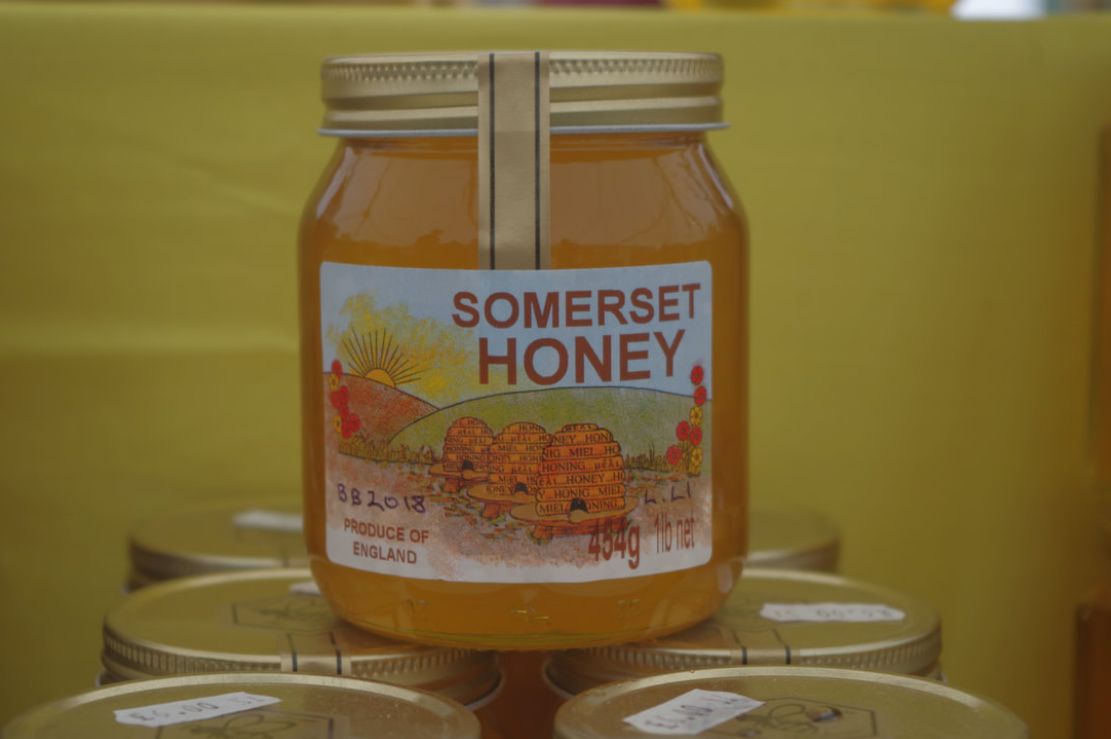 Somerset’s honey crop is one of the worst for decades say members of Somerset Beekeepers’ Association (SBKA). Some beekeepers have not harvested any honey at all, while others are substantially down on last year. The British Beekeepers Association’s (BBKA) annual Honey Survey released today (October 23, 2017) reveals that beekeepers in the South West saw their honey crop drop to 18 lbs per hive. SBKA Chairman Anne Pike said: “The glorious early Spring saw colonies build up fast but when the weather turned the honey stores were quickly consumed by the growing colonies of bees.” David Morris from Taunton has been keeping bees for 61 years and describes this season as the worst-ever and averaged just five pounds of honey per hive. “The cause is mainly weather-related,” he said. “We had a hot June followed by a wet July when what we want is the reverse to give us plenty of blackberry and clover nectar for a summer honey flow.” Local honey is in short supply and prices are expected to rise to reflect this season’s shortage. “Local honey is an extraordinary, natural product – it’s usually raw (untreated), contains local pollen and is additive-free,” added Anne. “Honey doesn’t just taste different from place to place, but from hive to hive and week to week! To use a wine term, local honey truly reflects the local terroir.” There are two honey crops a year, one in Spring and the other at the end of the summer and one hive can produce 60lb (27 kg) in a good season. Bees fly about 55,000 miles, making more than a million visits to flowers, to make just one pound of honey. Margaret Murdin, BBKA Chairman, concludes: “Everyone can play a part in helping honey bees and all the other insects they love such as butterflies and bumble bees by planting the right sort of flowers and shrubs. Check the label to see that anything you plant will be rich in nectar and pollen, as not all plants are equal in this respect. A crocus is so much better for bees than a daffodil, for example. “Our survey shows that suburban gardens and urban roof tops produce some of the best honey crops, so how we garden really can make a difference.” Ends Somerset Beekeepers (SBKA) is inviting the public to explore its new website launched today. The new website is packed with up-to-date information aimed at those who are interested in honeybees as well as beekeepers. SBKA Chairman Anne Pike said: “Our beautiful and informative new website contains information ranging from what to do if you spot a swarm to news about the latest Asian hornet sightings.” The site has been created by fellow beekeeper and IT security specialist Neil Cook from Yeovil to work on a PC, tablet and mobile. “Making the site informative and useful, but also relatively simple to navigate and ‘clean’ rather than cluttered, was a challenge,” said Neil. It took around 200 hours to build the site which is aimed at SBKA members, the public, press, and as a shop-window for apiculture. He added: “I think what is quite revolutionary, at least as far as I’ve seen in beekeeping websites, is having a central calendar and website for the whole SBKA, but with the divisional aspects updated and maintained by each division.” SBKA is a volunteer-run registered charity which works with more than 850 members and raises awareness of issues affecting honeybees more widely. Anne Pike added: “We are the voice of Somerset’s beekeepers and honeybees and this wonderful new website enables us to do this better. “Honeybees and other pollinators are having a tough time because of pests and diseases, loss of habitat and pesticides. One of our key roles is to help our members to keep healthy and strong colonies and to encourage the public to get behind pollinators.” Ends |
Archives
September 2023
Categories
All
|
Somerset Beekeepers Association Charity © 2021 Registered CIO Charity 1206483
Affiliated to the British Beekeepers Association
Click here to view our Privacy Policy
Affiliated to the British Beekeepers Association
Click here to view our Privacy Policy
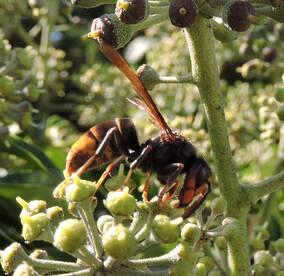
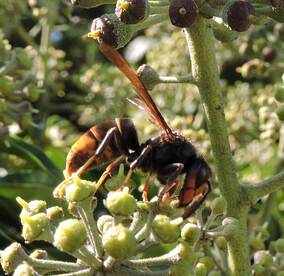
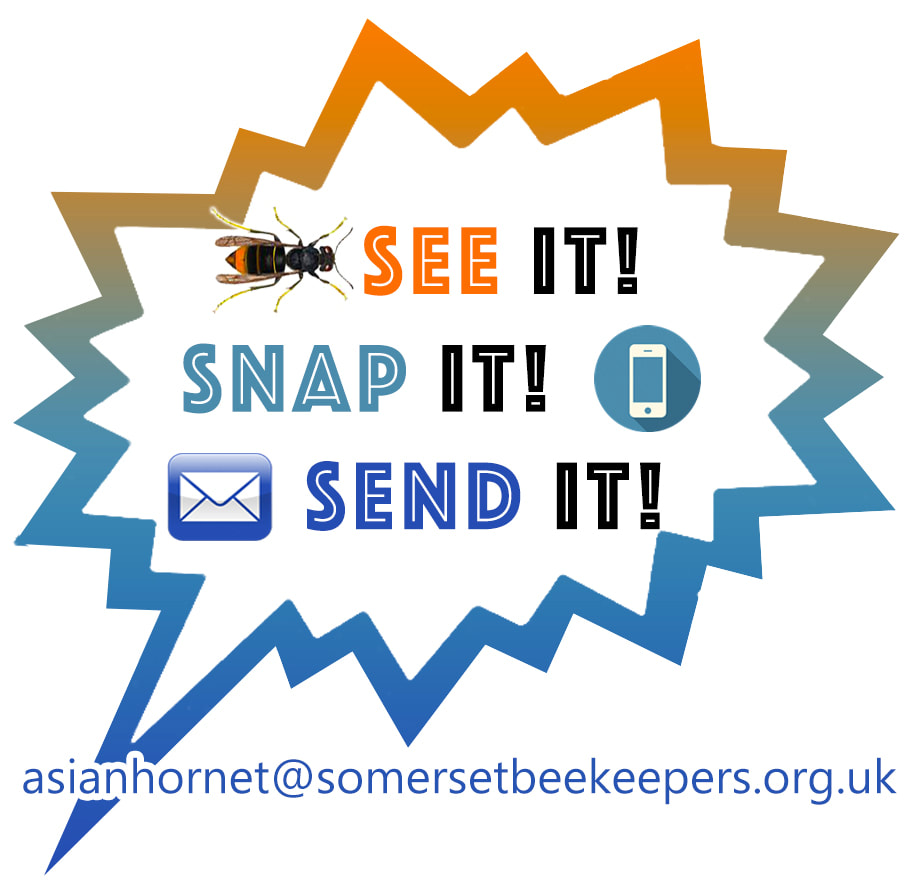
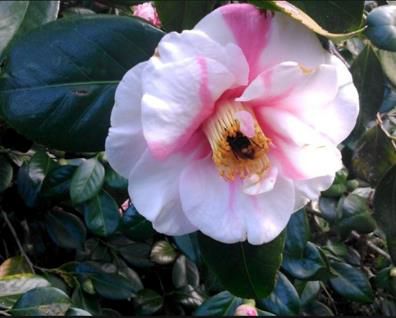
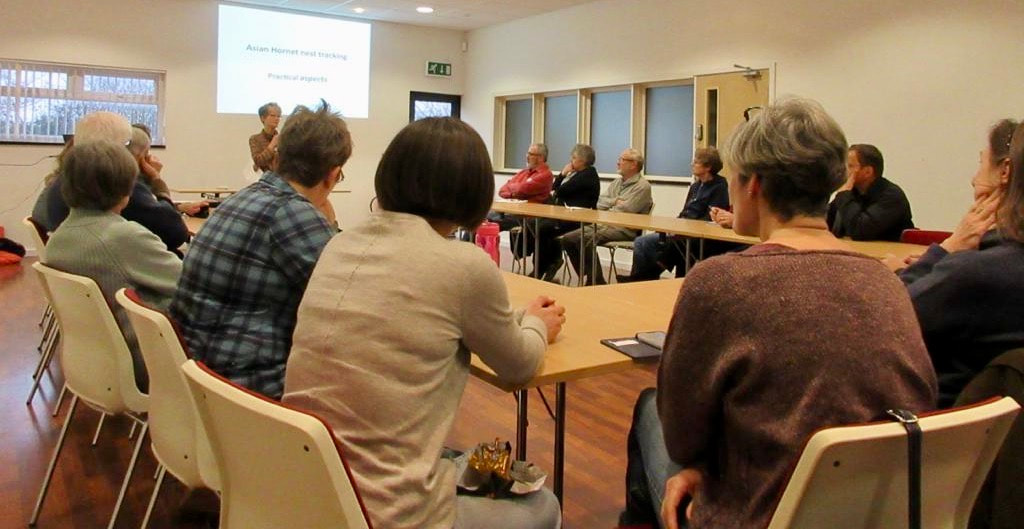
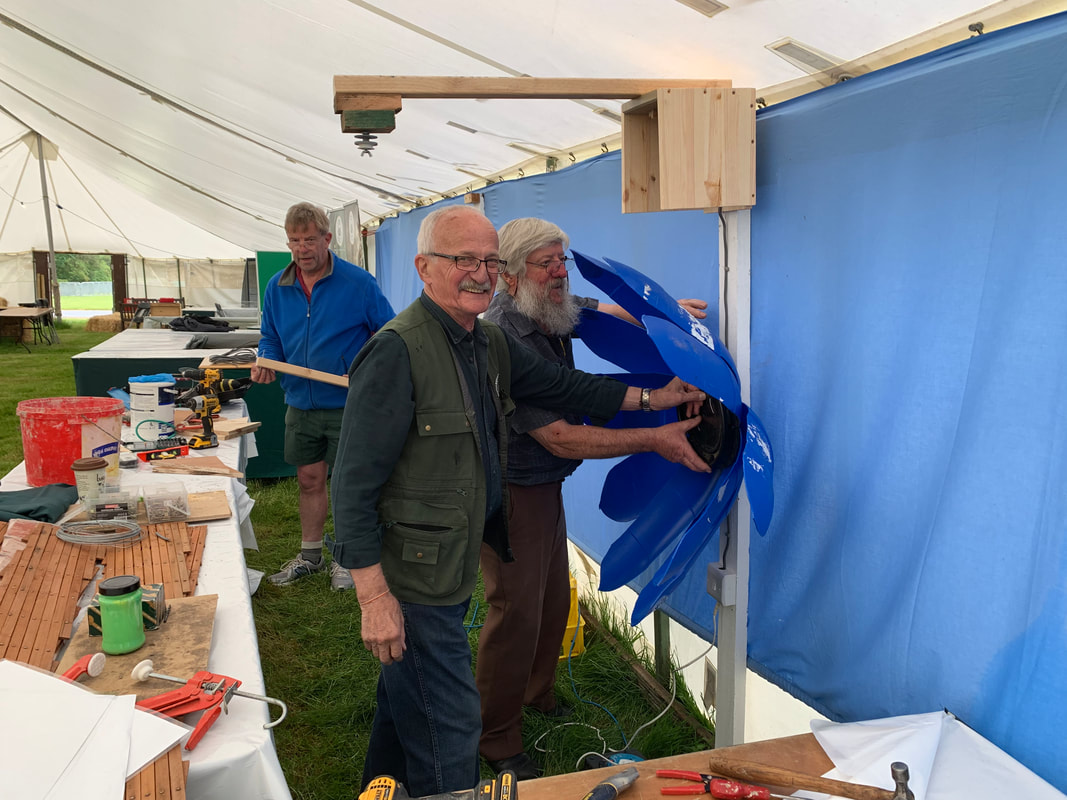
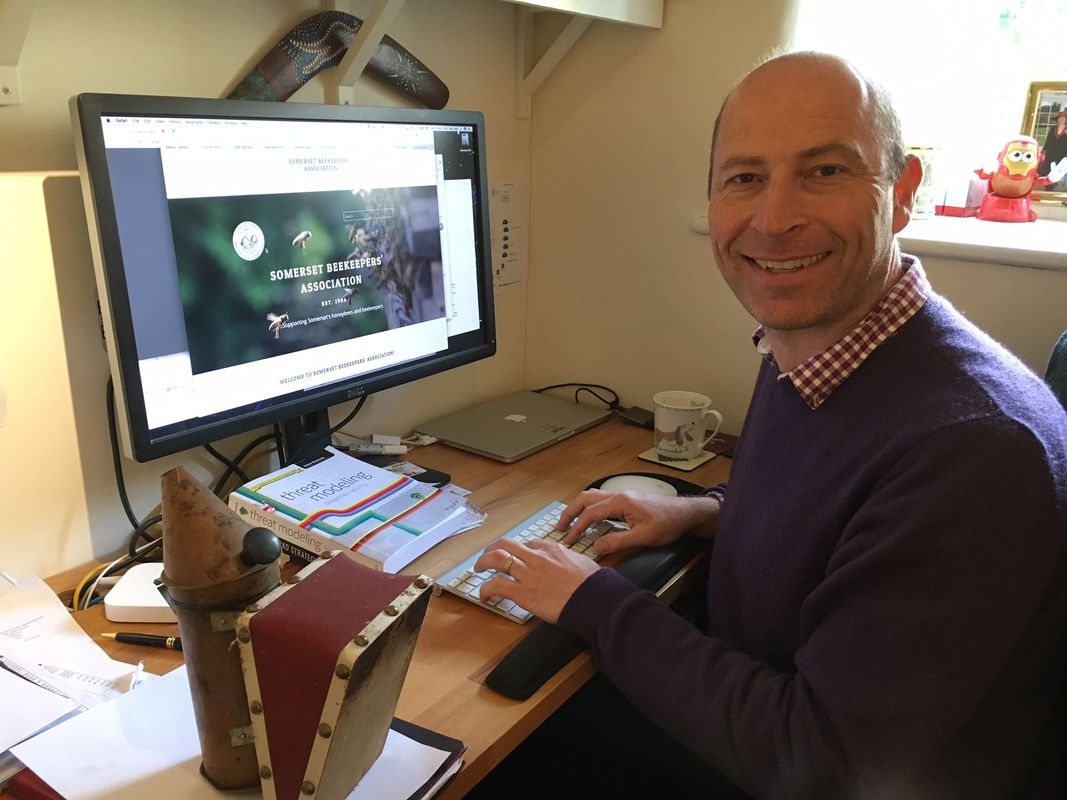
 RSS Feed
RSS Feed
